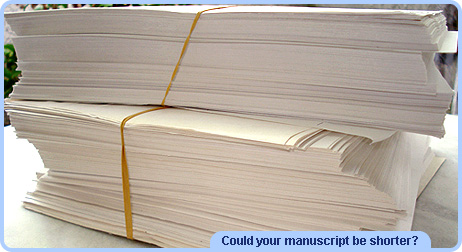|
|
 |
 |
|
Kootenay II
|
|
Posted by JVJ @ 2:44 pm
|
Sept 26th: 2007
|
Here are some more photos of Kootenay. I camped on the edge of the park one
night and watched as the Milky Way slowly revealed itself above me.
A short hike west of the falls takes you uphill to the ochre beds and paint
pots. The contrast in colors is striking; the deep orange of the earth and
milky green of the pools. Ochre is a naturally occurring pigment and it
bubbles to the surface here. Iron oxide builds up around the spring heads,
forming pools.
|
|
Yoho
|
|
Posted by JVJ @ 10:45 am
|
Sept 24th: 2007
|
Here I am in Yoho National Park, doing my best impression of Vanna White.
The features Iím showing off are the Takkakaw Falls, which at 384m is the
23rd highest waterfall in the world.
And the Takkakaw Creek which flows into the Yoho River. The falls are fed
by the Daly Glacier. When I first saw the color of the creek I couldnít
wait to get down to the shore. Here, before me, was the Milk River Iíd
written about in Fortress of Grey Ice and Sword From Red Ice. Tiny
particles of limestone ground up by the glaciers give the water its milky
appearance. It was wonderful to see something Iíd only read about in books
brought to life. Tall pines, pebbled shoreline, milky water: I could be
standing outside the roundhouse at Castlemilk. |
|
Kootenay
|
|
Posted by JVJ @ 09:51 am
|
Sept 22nd: 2007
|
The first national park I visited was Kootenay. It was here we saw two
bighorn sheep by the road. This one stayed put and inspected us while we
took photographs. The other headed for the bush.
Kootenay is known for the Radium Hot Springs. For six dollars you get to
soak under the stars. The water temperature changes depending on where you
are in the pool, and vapors curl around you as the air drops toward
freezing. The park's also known for the Vermillion River, which is an elk
migration route. It's Fall, the right time of year, advised the locals.
I spent a lot of time watching that river. No elk. Deer, but no elk.
Next month (late October/early November) I'll be attending World Fantasy
Convention in Saratoga, New York. If you're in the area and would like to
come to a book signing or reading, stay put for details. |
|
Back From the Canadian Rockies
|
|
Posted by JVJ @ 09:37 pm
|
Sept 19th : 2007
|
I had a wonderful time in Alberta and British Columbia. Itís a spectacular
part of the world. Soaring limestone peaks, glaciers, alpine lakes, dense
forest, milky rivers: nine days isnít nearly enough to take it all in.
I saw Boo the 500lb grizzly in Golden, BC. I watched as he hunted in the
bushes for small game and then took a bath. He dug the pond himself.
When I returned home I learned the sad news about James Oliver Rigney, who
wrote as Robert Jordan. He was a great writer and will be missed. |
|
Biggie
|
|
Posted by JVJ @ 11:05 am
|
Sept 5th : 2007
|
I got Biggie from the Helen Woodward animal shelter six years ago. Her
mother was a feral cat and Biggie's always been a little gun shy. If the
doorbell goes you won't see her for hours. She'll be under the bed,
hiding. Friends didn't know I had a cat for years.
She answers to her name and comes running, tail up toward you, like a dog.
If she ever goes missing, the magic word that brings her home is T-U-N-A
(she can hear it a mile away). She loves closets, isn't afraid of big
dogs, but is terrified of other cats. Lizards are her prey of choice, and
she catches them and they escape. She keep the tails.
I'm off to Banff and Jasper for a few weeks--should be good research for
the books. I've never been to the Canadian Rockies before so I'm pretty
excited. Updates when I return. |
|
To Cut or Eliminate
|
|
Posted by JVJ @ 3:51 pm
|
Sept 1st : 2007
|
Dictionaries define the word edit as "to prepare for publication" and "to
cut or eliminate". In order to edit one's own work one must learn to do
both. The cut or eliminate part can be difficult for beginning writers as
we worked so hard over our choice of words; lovingly cataloging all the
details of a scene, providing vignettes to disclose our characters back
stories, sweating the sentence structure, honing our verbs. It can be very
difficult to look dispassionately at our work and ask, "How much of what
Iíve written is vital to the story?"

Time and experience helps, but few writers are ever their best editors.
That's why it's a separate profession. We need them. We can and should
learn how to edit our work however, even if it's an imperfect edit. Most
beginning writers overwrite their scenes. Too many details, side stories,
clauses, adjectives, words. A good exercise to begin with is to look at
something youíve written in the past (the older the better) and see how
many words you can cut out and still leave the sense of the story/scene.
For example: "John was a big man, carrying an extra hundred pounds" could
be reduced to "John was fat." Or "That morning they left the house at ten
and drove the two hours to San Diego" could become, "They arrived in San
Diego at noon." The important thing is to start making judgments about what
should and shouldn't be included in the finished work. One of the
hardest--and most essential--skills for writers to develop is knowing when
to hit DELETE.
|
|
 |
 |
 |
 |
|
|